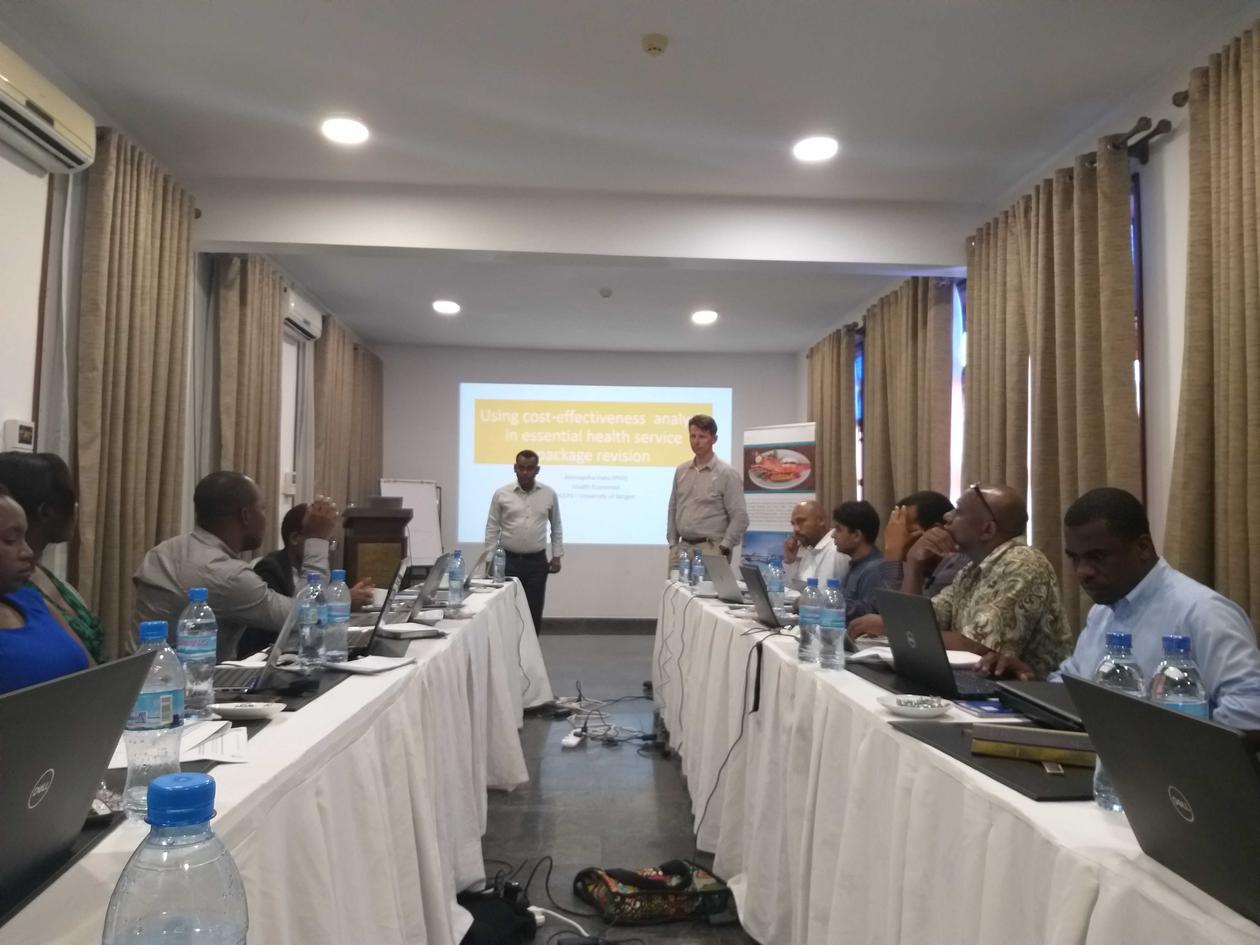OneHealth Tool (OHT) training in Zanzibar, February 2020
A six-day training workshop was conducted in Zanzibar from 16-21 February 2020 with participants from Zanzibar and Malawi and course leaders/facilitators from Ethiopia, Zanzibar and Norway.

Main content
Twelve participants from Zanzibar and four from Malawi took part in the training workshop:
Basics of cost-effectiveness analysis and costing of health interventions using OneHealth tool (OHT)
Problem Statement: What is a cost-effectiveness analysis (CEA)? How to interpret the results of cost-effectiveness analysis and assess the transferability of CEA results? How to cost health interventions using OHT?
A detailed agenda for the workshop can be found below:
DAY 1-3
Understanding costs, health outcomes, and cost-effectiveness ratio in economic evaluations and conducting a generalized cost-effectiveness analysis (GCEA) using WHO-CHOICE GCEA tool and critical appraisal and transferability of economic evaluation results
Learning Objectives:
- To learn the meaning, importance, types and key aspects of economic evaluation
- To learn what incremental cost-effectiveness ratio (ICER) means and how to detect dominance.
- To learn how to estimate intervention costs
- To learn how to measure the benefits of health interventions
- To be able to decide if an intervention is cost-effective
- To populate and utilize a simple cost-effectiveness model and conduct cost-effectiveness analysis
- To apply decision rules (dominance) using a list of health interventions with cost and effectiveness
- To learn how to conduct GCEA using WHO-CHOICE GCEA tool
- To learn how to conduct critical appraisal of economic evaluation literatures
- To learn how to assess relevance of a economic evaluation result to our setting and learn ways of adjusting past results from other settings to the current local setting
Tools to be used / Data sources: PowerPoint presentations, excel based exercises on cost, excel based data to identify dominance, and excel sheet based tool and data to conduct a cost-effectiveness analysis and WHO-CHOICE GCEA tool and practical exercises through critical appraisal of available literature and adjustments to the current local setting.
Output / Deliverables:
- Total cost of an intervention
- Health gains of an intervention
- Cost-effectiveness ratios (CER)
- CER of priority health interventions from the GCEA tool
- Critically appraised of economic evaluation literatures
- Adjusted CEA results from the past and other settings to the current local setting
DAY 4-6
Costing of health interventions using OneHealth tool (OHT)
Learning Objectives:
- To understand costing assumptions and inputs for costing of health interventions and health System using OHT
- To learn how to cost health interventions and health system using OHT
- To learn how to customize OneHealth Tool to the country context
- To understand results of Onehealth tool
- To learn how to utilize results of OneHealth Tool
Tools to be used /Data sources:
- PowerPoint presentations,
- Exercises (cases) and
- OneHealth Tool
Output / Deliverables:
- Scale-up costs of priority health interventions
- Total cost of an interventions
- Total cost of health programmes
- Total cost of health system componenets
- Health System utilisation
- Health gains of planned health interventions/services
Course organisers, leaders and facilitators:
Solomon Memire, Omar Mwalin, Kjell Arne Johansson, Alemayehu Hailu, Mideksa Adugna, Shoaib Hassan
OneHealth Tool
The OneHealth Tool is a software tool designed to inform national strategic health planning in low- and middle-income countries.
The World Health Organisation (WHO) provides technical oversight to the development of the tool, facilitates capacity building and provides technical support to policy makers to inform national planning and resource needs estimates.

